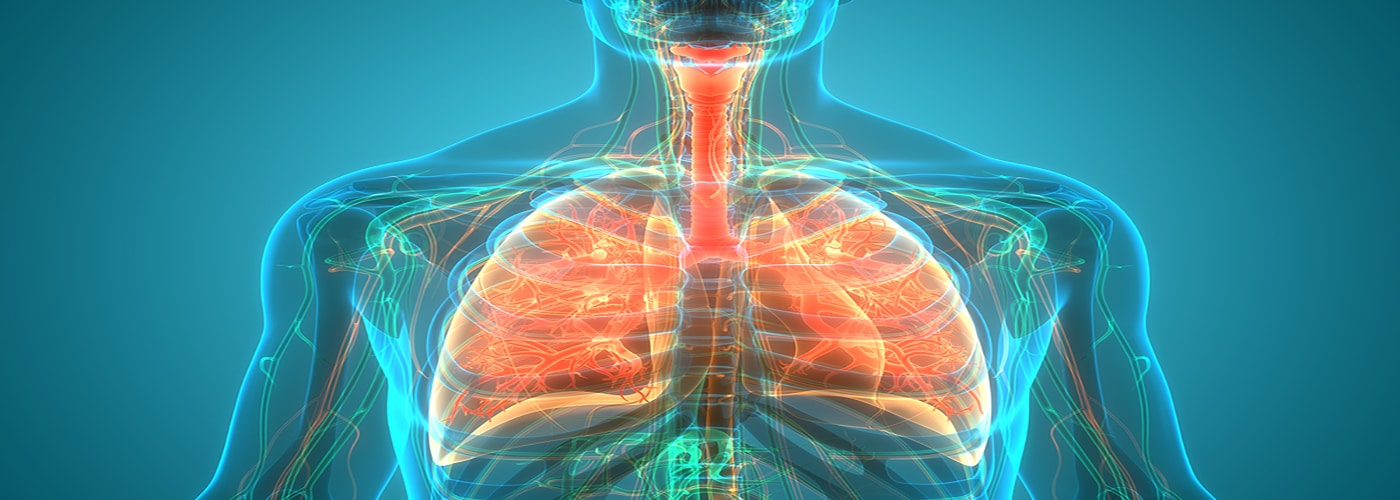Cocaine has been a devastatingly addictive drug to users ever since its appearance in the club scenes and discotheques of the 1970s. Perhaps even more destructive was the crack cocaine epidemic (also known as ‘rock’) that began in the early 1980s and still has its deadly hold upon thousands of addicts today.
Crack cocaine is a highly concentrated version of the drug that when smoked, produces a short high that overwhelms the brain’s pleasure centers and is incredibly habit-forming. Users can become addicted after trying the substance only a handful of times and the results are often catastrophic to the addict’s life and their body.
Table of Contents
Crack Cocaine Affects Many Organs Including the Lungs
As addiction to crack cocaine intensifies, smokers are no longer able to achieve the same high with the same amount of substances. Because of this, it is extremely common that addicts require more and more to satisfy their urges. This only creates more problems for them in their personal lives and again, for their bodies. Heavy users may need to spend upwards of $500 per day to stay high and need to be smoking crack nearly constantly. This abuse, of course, has a tremendously negative effect on the body and particularly the lungs.

Long-Term Effects of Crack Cocaine Use on the Body
People who have suffered from an addiction to cocaine are particularly at risk for certain effects from their use, especially when the addiction was to crack cocaine. Research has found that prolonged crack cocaine abuse created issues with not only lung health (known as ‘crackling) but with heart health as well! One study conducted by the National Institute of Health describes one study on the effects of crack addiction on one particular user.
A 33-year-old woman developed acute bilateral pulmonary infiltrates after the intense use of rock cocaine. She subsequently had progressive deterioration of pulmonary function to the point of being ventilator-dependent. (NIH)
Effects upon the body of the user are also compounded with the general effects of addiction including limited food intake, deprioritization of personal health matters, frequent unsafe sexual situations, and, of course, depression. Even abstaining crack users struggle with the constant threat of relapse which is often magnified when ingesting any other mind-altering chemical such as alcohol or marijuana. The risk of relapse is even more severe in urban areas where the drug proliferates.
Recovery from Crack Abuse and Healing for the Body
The only way to curb the cataclysmic damage of addiction is to live a healthy and vibrant life free from chemical use. Unfortunately for so many addicts, envisioning life without their drug is unimaginable, much less one that is happy, sustainable, and productive. Recovery from any substance is nearly impossible to achieve on one’s own without the help of trained professionals.
This is because addiction has so much more to do with than simply abstaining from the drugs. Even if an addict is fortunate enough to kick their habit with will-power alone, dealing with the stresses of everyday life can often prove too difficult driving the addict back to their unhealthy source of comfort: substances.
There Is Hope for Crack Cocaine Addicted Individuals
If you or someone you love is struggling with a dependence to crack cocaine, alcohol, or any other drug, Garden State Treatment Center is the first step towards regaining independence. Unfortunately, abstinence is not enough. Our comprehensive and evidence-based treatment works with a myriad of treatment options to keep patients off of substances for good. Your life or the life of your loved one is too important to lose to the evils of addiction. Contact us for a free consultation and start to heal today!
FAQ
Do your lungs and organs recover after Crack Cocaine abuse?
Published on: 2021-03-03
Updated on: 2024-04-07



